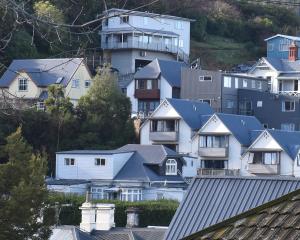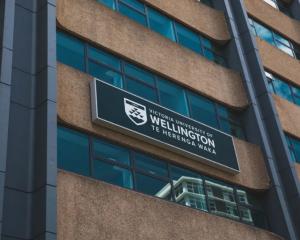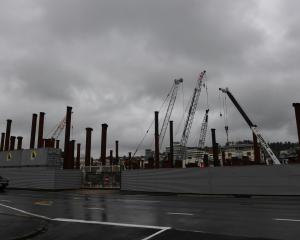Craig Werner, of Macandrew Bay, maintains the Dunedin City Council's spatial plan is good for city progress.
Peter Dymock (16.11.12) complains about the "futility" of the Dunedin City Council's spatial plan, which I think will be a very good foundation for city progress.
Mr Dymock correctly points out the National Government's Productivity Commission wants to sidestep protections and free up more land to be sold on city fringes. This is because land affordability and land cost as a percentage of the total house price is high in the large cities.
However, it is not true here, and we are not Auckland, Wellington or Christchurch. With the exception of these places, all of urban New Zealand lives quite well with our distinct urban-rural boundaries. You encounter them every time you're driving past paddocks towards a town at 100kmh, and suddenly it's a 50kmh speed-limit sign, and the suburban houses compacted side by side pop into view. This does not evidently result in a severe land-price impact for most of New Zealand nationwide, and I doubt that Dunedin has had house-price increases due to supply constraints, because population growth is low.
The spatial plan policies support new "granny flats", mixed-use commercial/residential and multiple dwellings replacing some single houses, for instance, and these will be an incremental whole new source of available housing throughout Dunedin's future.
Some, like Mr Dymock, champion the -acre Kiwi dream houses and perhaps see the present vast number as totally attributed to consumer choice and the free market at work. That pattern of this housing growth was established more than half a century ago, and single-occupant households are now far more common than in the past.
Also, the free market concept is false unless there is a variety of housing types on offer to choose from. Where in Dunedin's locales is there broad choice of townhouses, garden and courtyard apartments, granny flats, clustered housing, mixed-use commercial/residential, first-floor apartments above shops, etc etc?
Each of these examples, by the way, would cost less than the traditional suburban house, and some of them much less. Allowing these housing alternatives a bit of "breathing room" is one small aspect of the new spatial plan.
Mr Dymock points out affordable housing is one of the reasons people choose to live in Dunedin and he states that "the city council has an absolute social and moral obligation to provide for this great Kiwi dream and to make it as affordable as possible". This is wrong. The council's true obligation is to avoid the myriad problems that would result from not balancing the many other factors that contribute to Dunedin's liveability.
When it comes to public transportation, the remark has been made that "Kiwis would rather sell their grandmother than give up their cars". While this over-the-top statement is humorous, I don't think that feeling applies to all Kiwis.
Although Mr Dymock is certainly a proponent of "unlimited personal freedom" as cited in his article, perhaps change is possible for many even if in the past they have been set in their ways. Let's not forget that in one of the Scandinavian countries the king (who also engages in commercial enterprises) regularly commuted to his office on the bus! We should remember, too, that if there are fewer parking lots, and fewer cars garaged in city residential areas, that potentially creates additional space for population expansion.
With a reference to our well-stocked supermarket shelves, Mr Dymock scoffs at the need to preserve soils and land. Plenty of food around and, after all, it's a globalised world, according to his argument. Would we just defer to the "international commodity market"?
With Africa and other places developing agriculturally, would we form the opinion that Dunedinites shouldn't have to support any form of conservation or "land banking" here?
Would we just let other countries grow our food, knowing that the amount of good land these other countries have left to live on will eventually and unfortunately be reduced but Dunedin would reap the benefit of cheap housing by building on even the highest-class soils?
Along with Dunedin being a university town and its economic focus on becoming one of the world's "great small cities", our reputation will also rest, in part, on being a good global citizen.











